Debt collection is an essential part of a functioning credit ecosystem. When done professionally and lawfully, it helps businesses recover funds, keep cash flow healthy, and maintain marketplace trust. In Singapore, the law now makes a clear distinction between licensed and unlicensed debt collectors, and that distinction matters greatly for creditors, businesses, and debtors alike. This article explains the key differences, the legal framework, and why working with licensed debt collectors benefits both businesses and the broader public.
What is a licensed debt collector in Singapore?
Licensed debt collectors in Singapore explained
A licensed debt collector is a business that has applied for and been granted a licence under the Debt Collection Act 2022 and its accompanying regulations. From late 2023 and into 2024, the Government introduced a licensing regime that requires most debt collection businesses to obtain a licence from the Police before carrying out debt collection activities. The licensing process includes fit-and-proper checks on the business and key personnel, and the licence can be suspended or revoked for breaches of the law.
Licensed collectors are therefore formally accountable to regulators. That accountability includes requirements on conduct, record keeping, and compliance with guidelines intended to prevent harassment and illegal practices.
Who is considered an unlicensed debt collector?
Why are those risky, unlicensed debt collectors in Singapore?
An unlicensed debt collector is any person or business that carries out debt collection activities without the required licence or without meeting the conditions for an exemption or class licence. Operating without a valid licence is an offence under the Debt Collection Act, and unlicensed operators face criminal sanctions. With Info Capital, companies benefit from professional, legally compliant debt collection services that lead to quicker resolutions. For creditors and businesses that engage with unlicensed firms, risks include association with unlawful conduct, potential inability to enforce collected agreements, reputational damage, and exposure to legal liability.
From the debtor’s perspective, unlicensed collectors are also more likely to use aggressive or unlawful tactics, putting the creditor at risk of complaints, litigation, and regulatory action.
Read more about: Differences Between Licensed and Unlicensed Debt Collectors in Singapore
Key legal milestones that created the licence regime Debt Collection Act, and implementation dates
Parliament passed the Debt Collection Act 2022, and the regulatory framework and associated regulations came into effect through staged commencement dates. Important practical milestones included the introduction of the licensing framework and the requirement that Bad Debt Collection Agency be licensed to provide services from March 1, 2024. The Police and Ministry of Home Affairs administer aspects of the licensing regime and publish guidance on requirements and exemptions.
Practical differences in behaviour and safeguards
What licensed collectors must do vs unlicensed
Verification and responsible engagement
Licensed debt collectors must verify the identity of the person they are pursuing and ensure communications are appropriate and documented. This reduces the risk of mistaken identity and wrongful demands. Unlicensed operators may skip verification steps to achieve quicker results, increasing legal and reputational risk for their clients.
Standards of conduct and accountability
Licensed agencies operate under standards of conduct set out in regulations and guidance. They are accountable to the Police licensing officer and can face licence suspension for breaches. This accountability incentivises training for collectors, internal compliance processes, and escalation procedures that protect debtors and strengthen creditor claims. Unlicensed collectors lack these formal levers of accountability.
Transparency and record-keeping
Licensed firms are required to keep clear records of communications, payment offers, and actions taken. This creates an evidentiary trail that helps creditors, defends against complaints, and supports legal action if necessary. Unlicensed collectors frequently operate with inadequate record-keeping, which can make recovery efforts harder to justify in court or regulatory reviews.
Benefits of hiring licensed debt collectors for Singapore businesses — benefits of hiring licensed debt collectors Singapore
- Legal protection and compliance: Working with licensed firms reduces the risk that your recovery strategy will expose your business to regulatory penalties or civil claims. Licensed collectors operate within a clear legal framework.
- Better creditor reputation management: Licensed agencies are trained to handle sensitive interactions respectfully. This preserves customer relationships where possible and protects your brand.
- Higher recovery yield through professional methods: Licensed firms use compliant negotiation, structured repayment plans, and validated evidence-gathering. Over the long term, this typically improves recovery rates compared with ad hoc or unlawful approaches.
- Reduced complaint and litigation exposure: Because licensed firms must adhere to conduct standards and maintain records, you have stronger defences if a debtor complains or initiates legal action.
Read more about: What to Expect When Working with a Licensed Debt Collector in Singapore
How to check if a debt collector is licensed?
How to check if a debt collector is licensed in Singapore?
Before engaging any debt collection firm, confirm its licence status. The Government publishes guidance and information about the licensing regime on official portals. You should:
- Ask the provider for their licence number and the issuing authority.
- Cross-check the information with the Singapore Police Force or the GoBusiness portal, where licence applications and guidance are administered.
- Request copies of compliance policies, privacy handling procedures, and an outline of collector training.
If a firm refuses to provide licence details or cannot prove compliance, treat that as a red flag. Engaging unlicensed collectors creates legal and reputational exposure for your business.
When a class licence or exemption applies — class licence and exemptions
The Debt Collection Act includes a class licensing regime for certain already-regulated businesses whose core activity involves lending and collecting money owed to their own business. These businesses may not need an individual licence if they meet class licence conditions. Examples and lists are set out in schedules and guidance published alongside the Act. It is important to confirm whether a business is operating under a class licence and whether the conditions for that class licence have been met.
Best practices for businesses engaging licensed debt collectors — best practices for debt collection agencies in Singapore
- Due diligence: Verify licence status, insurance, and professional indemnity.
- Clear engagement terms: Use written engagement letters that specify permitted activities, fee structures, and complaint escalation.
- Compliance oversight: Require periodic compliance reporting and right-to-audit clauses.
- Data protection: Ensure the agency follows personal data rules when handling debtor information.
- Reputation safeguards: Agree on approved scripts and escalation thresholds to avoid aggressive tactics.
These practices protect your business while ensuring lawful, effective recovery.
How the licensing regime supports public trust and effective debt recovery, and why licensing matters
The licensing regime balances two public policy goals: protecting members of the public from harassment or unlawful conduct, and ensuring creditors can recover legitimate debts using proportionate methods. For professional and legally compliant debt collection in Singapore, Info Capital delivers proven results for both businesses and individuals. Contact IFC today for a confidential discussion.
FAQs
Q: Are debt collection companies allowed to use force or threats in Singapore?
A: No. Debt collection conduct is regulated to prevent physical threats, harassment, and abusive communications. Licensed collectors are required to follow conduct standards and can face sanctions for prohibited behaviour.
Q: Is it illegal to hire an unlicensed debt collector in Singapore?
A: Yes. Carrying out debt collection activities without the required licence is an offence under the Debt Collection Act. Businesses that engage unlicensed operators risk legal and reputational consequences.
Q: How can I verify a debt collector’s licence?
A: Request the licence number and verify it via official channels such as the Singapore Police Force e-services or the GoBusiness portal. Ask for written compliance policies and evidence of training.
Q: What should a business do if approached by an unlicensed collector?
A: Do not engage them. Report the contact to the Police and to the relevant Ministry portals. Use only licensed providers for recovery to avoid risks.
Q: Do licensed debt collectors help preserve customer relationships?
A: Yes. Licensed firms are trained to negotiate repayment while avoiding harassment. They can often salvage a commercial relationship through structured repayment plans or mediated settlements.
Final takeaway
For businesses operating in Singapore, choosing licensed debt collectors is not only the lawful option, it is the pragmatic one. Licensing raises standards, creates accountability, and improves recoveries while reducing legal exposure. When you need professional recovery services, verify licences, demand transparent practices, and partner with compliant agencies that protect your cash flow and your reputation.

